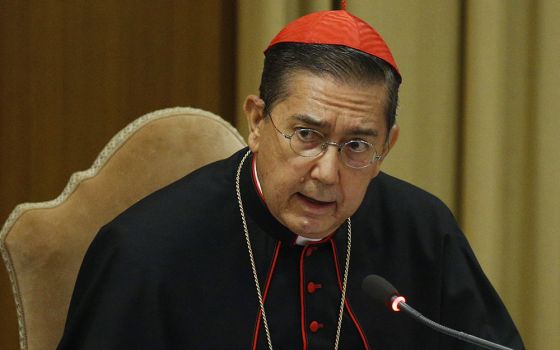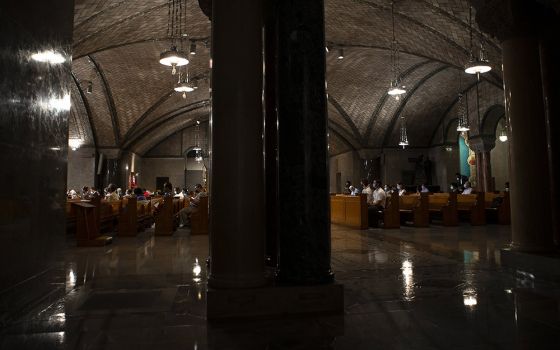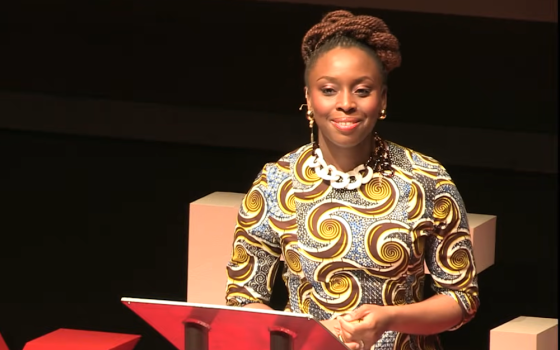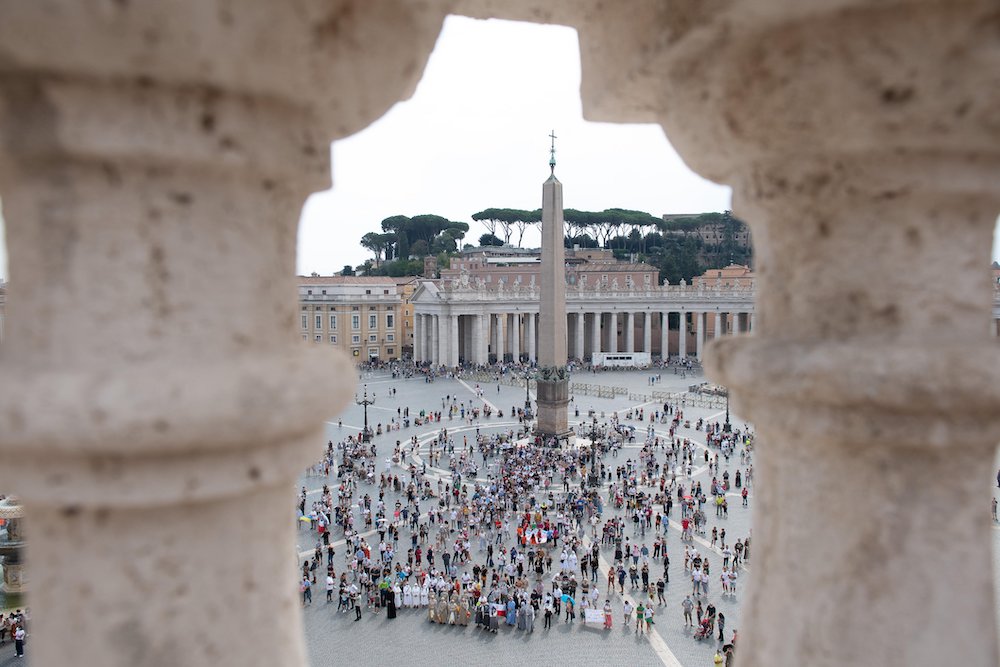
Pilgrims and visitors gather in St. Peter's Square at the Vatican to pray the Angelus with Pope Francis Sept. 20. (CNS/Vatican Media)
Prominent Catholic women across the globe are continuing to raise objections to the title of Pope Francis' forthcoming new encyclical, "Fratelli tutti," which uses the Italian masculine plural to address the world's population.
Some are also baldly upset at the Vatican's most recent explanations for not reconsidering or adapting the title, which appears to place the duty on women to see themselves as included.
Francis' encyclical, expected to focus on issues of solidarity and human friendship as the world continues to face the coronavirus pandemic, is set to be released Oct. 4. The title for the document is taken from one of St. Francis of Assisi's writings to the early members of his order, whom he addressed in Latin as his brothers.
Although the Italian translation "fratelli tutti" could sound to a modern Italian ear as "brothers and sisters all," the exact one-to-one translation is "all brothers."
Marie Dennis, who as the long-time co-president of Pax Christi International held one of the highest offices available to a woman in the Catholic Church, told NCR she was concerned the masculine construction of the title could distract from the importance of the rest of the pope's upcoming document.
"I understand that Pope Francis intends to be inclusive, but the tragedy of insisting on a title that excludes half the human family is immense," said Dennis, who stepped down from the co-presidency role in 2019 after serving for 12 years.
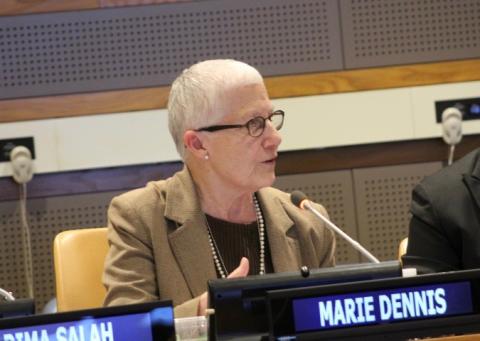
Marie Dennis, then-co-president of Pax Christi International, speaks at an event at the United Nations in 2017 (NCR photo/Chris Herlinger)
"Pope Francis' urgently needed message of solidarity and communion rooted in right, nonviolent relationships will not be heard by those who can no longer accept our marginalization in the church or society," she warned.
One prominent Italian Catholic woman expressed particular concern about a Sept. 16 article that appeared on the Vatican's official news portal, Vatican News, defending the encyclical's masculine title.
The article, written by Andrea Tornielli, the Vatican's editorial director, explained that the title was taken directly from the words of St. Francis, and that Pope Francis did not want to alter the saint's words.
Tornielli also stated, however, that "it would be absurd to think that the title … has any intention of excluding more than half of humanity." (Interestingly, Tornielli's use of the word "absurd" appeared in the Italian version of the text, but not the English version.)
Paola Lazzarini, president of the Italian group Donne per la Chiesa (Women for the Church), pointed to Tornielli's comment and said: "Once again we have been told by the Vatican how we must interpret its words, if we can or cannot feel offended, and even that our requests are 'absurd.' "
"This mansplaining has become intolerable," said Lazzarini, who is also a professor of sociology of religion and whose group includes hundreds of Italian women seeking better inclusion for women in church leadership.
"It is up to us women to say whether we feel represented in that 'Fratelli tutti' or not," she said. "As far as I have been able to gather in these days from many, many believing friends in Italy and abroad, the answer is no."
Advertisement
Natalia Imperatori-Lee, a religious studies professor at Manhattan College in New York, said she was "very angry" about the encyclical's title. She called the situation a catch-22 for women in the church.
"If we draw attention to the exclusionary language, we seem petty, or that we are focusing on one small detail," said Imperatori-Lee. "On the other hand … women's concerns are always minimized. It's never the right time to bring things up, our concerns are never as important as other issues."
The theologian asked how men would feel if the encyclical's title took the Italian feminine plural of sorelle tutte, or, "sisters all."
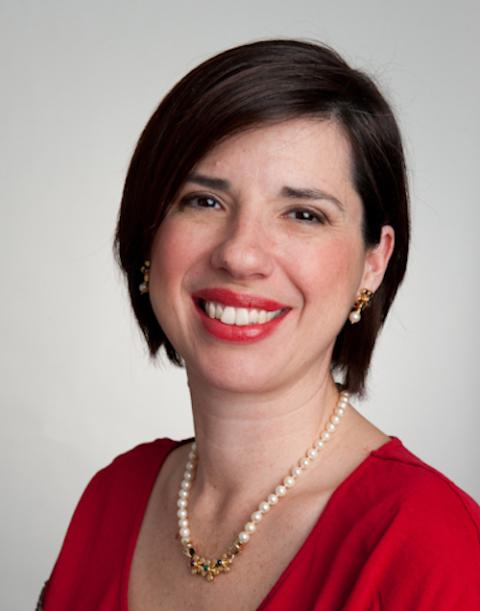
Theologian Natalia Imperatori-Lee on the curial reform: "To separate out governance or administration from orders means that orders is primarily a sacramental ministry and that governance then belongs to the whole people of God, which is as it should be." (Provided photo)
"If every encyclical were written about womankind, would men feel like they belonged fully?" she asked. "Would they feel ridiculous for bringing it up? Or would that concern, of systematically and symbolically excluding a significant number of the people of God, be paramount in the minds of popes, bishops, theologians?"
The Vatican has indicated that the title of the new encyclical will be left in Italian, and will not be translated into other languages. In that regard, they are following the model of Francis' last encyclical, "Laudato Si'," which was released in 2015 and also had a title taken from St. Francis.
Vatican News tried again to clarify the meaning of "Fratelli tutti" Sept. 22, publishing an article by Swiss Capuchin Fr. Niklaus Kuster, a historian known as an expert on St. Francis.
Kuster said St. Francis' phrase should be translated in a way "so that all Christians, men and women, feel involved."
[Joshua J. McElwee is NCR Vatican correspondent. His email address is jmcelwee@ncronline.org. Follow him on Twitter: @joshjmac.]




